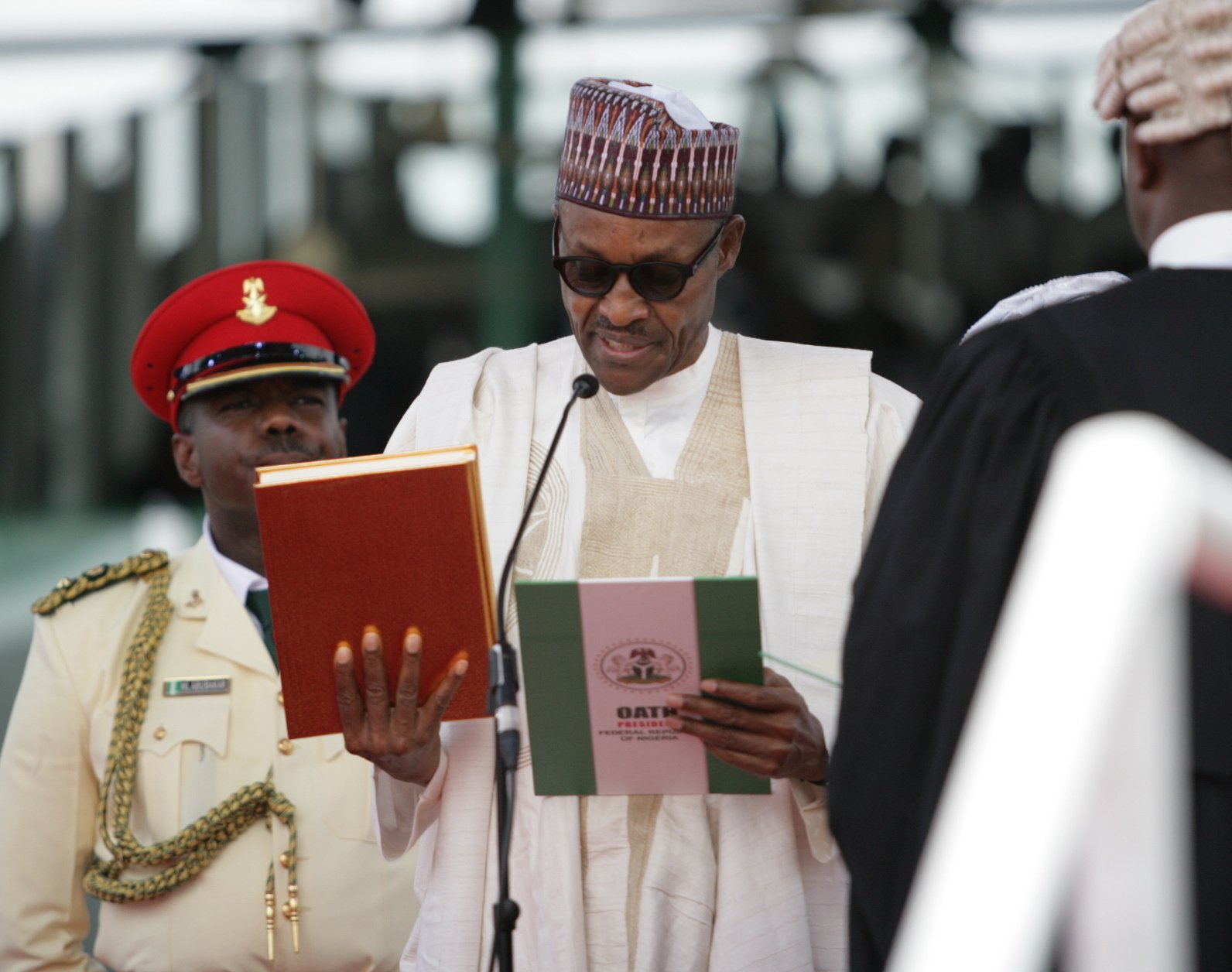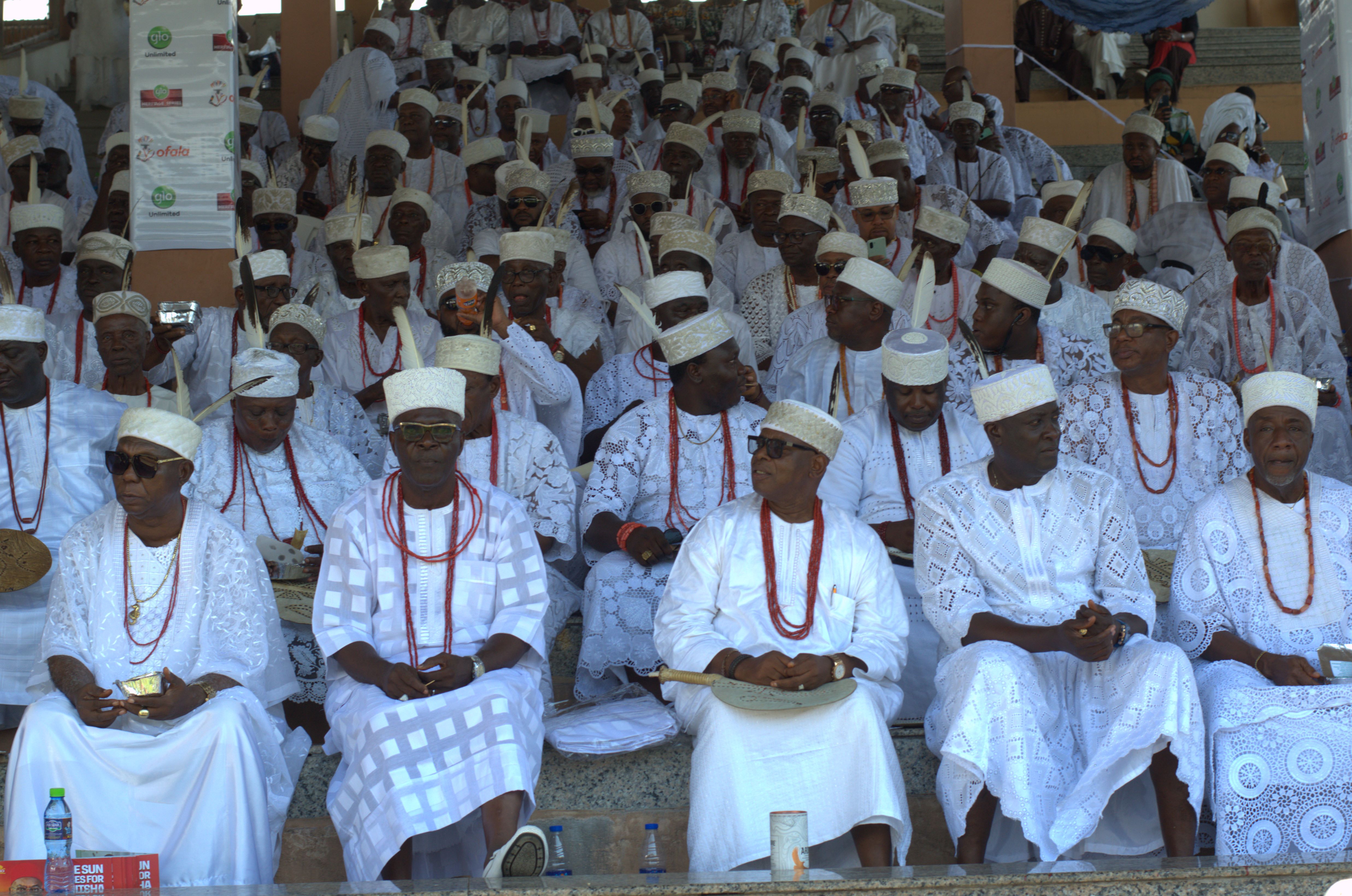By Dele Momodu
Fellow Nigerians, if you are a regular follower and frequent reader of my column, you would, in the past few weeks, have encountered the serialisation of the great lessons’ life has taught me in the last 59 years of inhabiting this planet. But I have decided to take a break from my biographical narration in deference to the recent June 12 celebration as a national holiday and our new Democracy Day in Nigeria replacing May 29 which is now effectively merely Inauguration Day. It is right that June 12 should be Democracy Day given the utmost import of that day in the annals of our democratic history and especially in the realisation and actualisation of democracy that we now call the Fourth Republic. You will therefore understand, and appreciate, in a jiffy why it was expedient for me to write about June 12, although in a sense it is an integral part of my life’s experience.
Let me start by raising a toast to President Muhammadu Buhari on the smart decision to acknowledge the importance and significance of that day Nigerians united to vote for one man without ethnic and religious considerations or colouration. It is also noteworthy, and remarkable, that President Buhari chose to honour some of the notable figures in the struggle for the fulfilment and revalidation of the June 12, 1993, Presidential mandate, which was freely and overwhelmingly given to Chief Moshood Abiola by Nigerians. This is probably the biggest and best goal scored so far by President Buhari since his return to power in 2015. Nothing, and no one, can rob or deprive him of the plaudits and applause that are ascribed to this particularly delightful gesture with pleasure. Thank you, Mr President, from the bottom of my heart. I was and remain overwhelmed by your generosity of spirit particularly because you did not have to do it. Others who had better reasons to do it, spectacularly failed to do so and they were not crucified for it. Instead Nigerians shrugged and moved on. Building on your great spirit of atonement, you have further endeared yourself to me by naming the National Stadium in Abuja after MKO Abiola. What more can one ask of you? As I wrote when the announcement was first made about June 12 becoming Democracy Day, and the actual ceremony came up in the Presidential villa in Abuja, it matters not to me if there were political undertones to these kind and gracious gifts. People will read politics and ulterior motives into anything, but one must always appreciate and celebrate humaness and humanity, and this is one of such occasions. And so, as for me and my house, God used President Buhari to make what seemed impossible possible, and that should suffice for now if not for ever.
Have you noticed how, suddenly everyone is now an apostle of June 12! What is worse is the revisionist history which is being espoused and churned out by several people, mostly in order to cleanse or whitewash themselves because of the nefarious roles that they placed in the truncation of the Dream. Some are mere charlatans who seek to jump on the bandwagon with the hope of feathering their nests. Those who know the truth, know, and it is my fervent hope that before too long we will start seeing accurate memoirs from those who seek nothing more than truth and justice. We owe this to the memory of MKO.
Having said that, let’s now get down to the very serious business of the day. It is not enough celebrating the date June 12 or naming the Abuja National Stadium or any other edifice or institution after Chief Abiola. The spirit of June 12 must also be absorbed and imbibed. That is what can make sense and achieve the desired purpose eventually. Making a fetish, ritual or routine of the date alone is of no substance, if Nigeria and Nigerians have nothing concrete to benefit from it. And what can we gain?
One, Nigeria needs another Abiola, or a fair replica of him or any of our avowed nationalists and patriots that travelled the space called Nigeria before him. I have always maintained that the monumental victory recorded by Abiola on June 12, 1993, was not an accident or a fluke. It was a reward for the phenomenal life of hard work, sacrifice, dedication, generosity and uncommon love for mankind that Abiola demonstrated and evinced. Abiola was not interested in where you came from or what religion you practiced, he was more concerned about your performance and service delivery. Nigeria desperately needs another completely detribalised, secular and worldly man or woman, at the very top of our political stratosphere. On this score, I doubt if Buhari is willing or able to make the substantial effort necessary given his age and antecedents. However, if he tries this second term around, he may still go on to become a global statesman and a leader whose story will be told and retold in Nigerian folklore.
Two, Nigeria requires a leader who knows how to spot talent, like Abiola, and nurture it. Chief Abiola surrounded himself with the best brains in every endeavour that he undertook, be it religion, social life, business, sport or politics. There are too many of such people and space will not permit me to name them individually, but rest assured that in their respective fields, they are like a list of Who is Who. What they also had was diligence and integrity, although some of them later became compromised for a variety of reasons which is not the subject of this discourse. What the Buhari government needs to demonstrate, very glaringly and urgently, is the ability to reward and embrace talent and merit. It must target and bring on board the very best that Nigeria has to offer. Unfortunately, this has not been the case thus far, and it is Nigeria and her people that has suffered badly.
President Buhari must regard and welcome every Nigerian as a part of one big and united family. The biggest problem facing us is the lack of unity and cohesion, borne partly from the suspicion that mediocrity is crowned whilst merit is demoted. This is responsible for the spate of killings all over Nigeria. True love has taken flight and what is left is concentrated bitterness. Chief Abiola felt at home in every nook and cranny of Nigeria and he was welcomed with open arms. There should be a method to our madness. President Buhari should put the past behind and whatever informed his seeming aloofness and nonchalance. Leadership must inspire, it must rouse the people from their deep slumber. What I see in Buhari is a President who has turned taciturnity into an art. This makes it difficult for Nigerians to read his mind or know the direction he is facing. It makes for stilted and struggling nation building and development. It is a recipe for deep stagnation in our social and political life.
Three, Nigeria is a secular State and its secularity should be maintained decidedly and decisively. The tension about religion is borne out of the decision of our leaders to dabble into matters which ordinarily should remain a personal matter between man and his God. Whosoever wants to serve his God fervently should work very hard to raise the funds needed and necessary. Nigeria can no longer afford to waste resources on personal projects that should never be of interest or concern to the State. Our infrastructure deficit is way too high for us to continue our profligate lifestyle. When we de-emphasise matters of religion in State policies, individuals would be encouraged to invest directly in their faith and religion, as they should. Everyone knew Chief Abiola as a devout Muslim, but they also knew him as a liberal who tolerated other religions within his group of companies and could be trusted enough if he makes appointments that seemed lopsided. It was for that singular reason that he was able to get away with the Muslim-Muslim ticket of Abiola and Kingibe, just like he would have done had it been his preferred ticket of Abiola and Atiku. Buhari’s trajectory and seemingly fundamentalist speeches in the past have come back to haunt and dog his every move. A large chunk of Nigerians tends to see him as someone who favours his religion and his tribe above others and who may even go the extra mile to stifle other faiths and tribes. Whereas, on the other hand, Chief Abiola invested in churches and mosques all over the federation with his personal funds and brought people of different tribes and ethnicity into his magic circle.
I vividly remember an encounter between Alhaji Baba Gana Kingibe and I in 1993. Kingibe was the Vice-Presidential candidate of the Social Democratic Party. As soon as Chief Abiola returned to Lagos from the Jos Primaries which he won by the whiskers, I was at his house to remind him of his promise to attend the Grand House Reception at Guv’nor Ken Calebs Olumese’s Niteshift, on Opebi Road, Lagos, which was easily the most prestigious nightclub in Lagos at the time. Kola Abiola had whisked his Dad away for a couple of hours’ rest, but Chief Abiola still made it to the club where he mingled and danced with everyone, whether saints or sinners. After that big night, the Guv’nor of Niteshift requested me to help invite Alhaji Kingibe and I went to his house and a deal was sealed. But close to the date, Kingibe developed cold feet and said he wasn’t going to attend again because some members of his faith might misconstrue his motives and motivation and accuse him of interacting with men and women of low morals which could easily get him into trouble. I understood but it was difficult to back out at that stage because the preparations had gone too far. So, I approached Chief Abiola for his intervention and fortunately Alhaji Kingibe was coming to see him. When Kingibe arrived, Chief asked why he would rather disappoint those who wanted to host and honour him. Kingibe expressed his apprehension to Abiola who responded with a powerful salvo, “you are not more Muslim than me, if I can enter the nightclub, there’s no reason you cannot enter…” That did the magic and Kingibe agreed to attend and we all had great fun. And that was one of the things that endeared their joint ticket to those who were not overtly religious. The Abiola/Kingibe disposition would easily douse the kind of volatility of religious conflagration in Nigeria today.
Education is the greatest leveller between the rich and the poor anywhere in the world. Abiola was inspired by his own background and experiences. Had it not been for education, he would never have attained the heights he did. It was education that gave him the exposure he had. To show his appreciation and his understanding of how education could lead to social, economic and political emancipation and integration, Chief Abiola invested heavily in education not only via scholarships to indigent students nationwide but also by contributing to educational infrastructure in all parts of the country. In what was regarded as the biggest single donation ever to higher institutions at the time, Chief Abiola gave out about 30 million Naira to all Nigerian universities. Beyond that, he built libraries for many schools. He also made books available and affordable for students by establishing Abiola Bookshops which became a haven and succour to many students and lecturers. Abiola was committed to devoting a large part of his personal fortune to the education of the people. I am sure that he would have done the same in government by allocating a substantial part of the country’s budget to education. I know that under Abiola the intractable problems between the government and staff of our tertiary institutions would have been a thing of the past. He would have accommodated and provided for them, no matter what.
Abiola knew that food was a critical necessity in everyone’s life and that attracted his attention. He established Abiola Farms in Ogun, Kwara and Taraba States. Long before local rice production became the vogue in Nigeria, he had invested in rice mills and massive silos in Daka. He also owned Banuso Fisheries. His Wonder Bakeries Limited was built to international standards and I was a happy distributor of Wonderloaf at a point in 1991 after I resigned from my celebrated job as Editor of Classique magazine. Just imagine the spiralling effect of Abiola’s investments. He used to tell anyone who cared to listen that only entrepreneurs like him could know how to create employment and job opportunities. Abiola was a serial investor who touched lives everywhere in Nigeria and beyond. In his private life he was already doing the business that he knew public life would demand of him.
It behoves a government determined to successfully govern for its people to demonstrate its preparedness to attain the next level by sincerely nurturing talent, shunning ethnicity and religion, fostering education, engendering food production and promoting job creation. That was Abiola’s way. It is my hope and prayer that Democracy Day will be seen as a day when the nation’s leaders renew their vows to govern for Nigeria in the essence epitomised by our gloriously appointed and anointed leaders such as MKO Abiola.
Democracy Day must not just be celebratory and ceremonial. It must be much more. It must be Liberation Day, with freedom from the shackles of deprivation, poverty, diseases and insecurity of all shades and form.

 News6 years ago
News6 years ago
 Featured7 years ago
Featured7 years ago
 Boss Picks6 years ago
Boss Picks6 years ago
 Headline6 years ago
Headline6 years ago
 Headline6 years ago
Headline6 years ago
 Headline6 years ago
Headline6 years ago
 Headline6 years ago
Headline6 years ago
 Headline6 years ago
Headline6 years ago

























